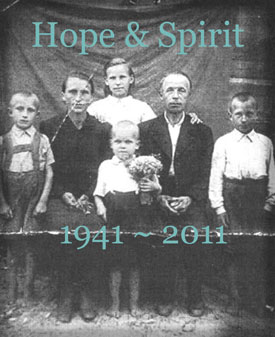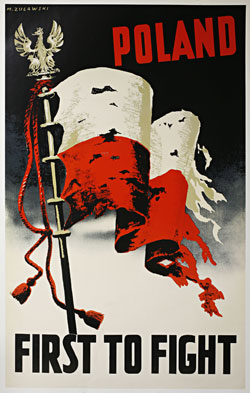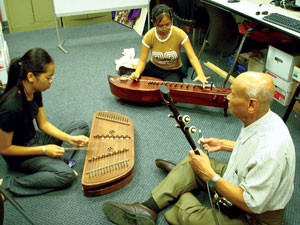 Chicago is a city of neighborhoods and ethnic groups, but, as in most places, crosscultural cooperation can be a challenge. Turf battles and competition for scarce foundation and government resources complicate relationships. Bucking this trend, theChicago Cultural Alliance (CCA) has made significant strides in building the capacity of community nonprofit cultural organizations that help communities increase awareness of their cultural heritage, aid residents in need, and improve their futures.
Chicago is a city of neighborhoods and ethnic groups, but, as in most places, crosscultural cooperation can be a challenge. Turf battles and competition for scarce foundation and government resources complicate relationships. Bucking this trend, theChicago Cultural Alliance (CCA) has made significant strides in building the capacity of community nonprofit cultural organizations that help communities increase awareness of their cultural heritage, aid residents in need, and improve their futures.
The Chicago Cultural Alliance
TheChicago Cultural Alliance formed in 2006 as “a consortium of Chicago-area ethnic museums and cultural centers whose mission is to effect social change and public understanding of cultural diversity through first voice perspectives.”1 The 25 core members of the alliance draw upon history and heritage to explore identity and engage community members in discussions of contemporary issues. Partner institutions are major institutions that bring resources to the alliance for mutually beneficial collaborations.
The alliance grew out of Cultural Connections, a public education program at Chicago's Field Museum between 1998 and 2008. Cultural Connections members partnered to present crosscultural programs on universal themes to their communities, public school teachers, and the public at large. The program used an anthropological framework called “common concerns, different responses” to explain cultural differences, drew on “first-voice” (insider, community member) perspectives to present the themes, and relied on trained volunteers to facilitate a dialogue after the presentations. In the course of the collaborations, these organizations agreed they wanted to create an alliance that would help them expand their capacities, increase their visibility, secure more funding, and continue to develop collaborative programs.
Alliance core members are diverse structurally as well as in terms of ethnicity and race. Their individual budgets range from about $5 million to very little. Some are long-established museums (the Polish Museum of America dates from 1937); others have no space and operate entirely with volunteers. They represent cultural and ethnic communities whose populations range from 3,000 to 3 million people in the Chicago area. Some of these communities experience ongoing immigration, and their organizations focus primarily on delivering services.
Ethnic Neighborhood Museums in Chicago
Most CCA core members host permanent or temporary exhibitions. The AHA Local Arrangements Committee has organized three tours to exhibitions that highlight world events:Tour 3, World War II and Its Aftermath: The Polish and Ukrainian Experiences (Thursday, January 5, 2–5 p.m.); Tour 11, Cambodian American Heritage Museum: Remembering the Killing Fields (Saturday, January 7, 10 a.m.–1 p.m.); and Tour 12, World War II and Its Aftermath: The Lithuanian Experience (Saturday, January 7, 2–5:30 p.m.).
 Attendees may choose to visit on their own other exhibitions that focus on the ethnic communities of Chicago. The Mitchell Museum of the American Indian features an exhibition on Cahokia, the metropolis settled between 600 and 1300 CE near present day St. Louis, and another entitledDeconstructing Stereotypes: Top Ten Truths. The Chinese-American Museum of Chicago hosts a special exhibit on Chinatown’s centennial. DANK-Haus German Cultural Center in historic Lincoln Square interprets Lost German Chicago in its newly opened museum space.
Attendees may choose to visit on their own other exhibitions that focus on the ethnic communities of Chicago. The Mitchell Museum of the American Indian features an exhibition on Cahokia, the metropolis settled between 600 and 1300 CE near present day St. Louis, and another entitledDeconstructing Stereotypes: Top Ten Truths. The Chinese-American Museum of Chicago hosts a special exhibit on Chinatown’s centennial. DANK-Haus German Cultural Center in historic Lincoln Square interprets Lost German Chicago in its newly opened museum space.
Families with children should check out theSwedish American Museum's Brunk Children's Museum of Immigration, which, according to its web site, was named one of the best “hands-on exhibits for every kind of kid” in Chicago magazine’s “Best of Chicago” list for 2011. The Bronzeville Children's Museum uses hands-on learning to highlight African American inventors and bankers in the city.
Several institutions include art exhibitions or galleries. Among these are the DANK-Haus, theUkrainian Institute of Modern Art, the American Indian Center's Trickster Gallery, theInstitute of Puerto Rican Arts and Culture, the Polish Museum of America, Casa Michoacán, and the Swedish American Museum.
Heritage Preservation
Preservation of heritage and history is part of the mission of all CCA core members. Some have extensive artifact, photographic, or manuscript collections whose preservation and display is central to their mission. Others, such as the Bronzeville/Black Chicagoan Historical Society, build on relationships with the community to preserve family documents and photographs to document heritage and history. The alliance has secured funding from the Gaylord and Dorothy Donnelley Foundation to assist the staff of several member institutions to document, register, digitize, and prioritize items in their collections for future conservation work. In other cases, preservation needs yield to more urgent social needs. TheEthiopian Community Association of Chicago, for example, has an extensive artifact collection, but it functions primarily as a refugee resettlement agency and social service provider for various communities.
 Members also work to preserve cultural heritage. Many organizations offer language instruction; others teach arts and music. Although primarily a social service and advocacy organization, the Korean American Resource and Cultural Center offers a class in poongmul (traditional percussive music). In addition to teaching music, dance, and the arts, the Cambodian Association of Illinois has an artist-in-residence, whose sculptures grace the façade of the organization’s building.
Members also work to preserve cultural heritage. Many organizations offer language instruction; others teach arts and music. Although primarily a social service and advocacy organization, the Korean American Resource and Cultural Center offers a class in poongmul (traditional percussive music). In addition to teaching music, dance, and the arts, the Cambodian Association of Illinois has an artist-in-residence, whose sculptures grace the façade of the organization’s building.
Even organizations without paid staff or dedicated space contribute significantly to preserving history. The Chicago Japanese American Historical Society is partnering with the Japanese Mutual Aid Society on a documentary, funded in part by the National Trust for Historic Preservation, analyzing community efforts to fight discrimination by Chicago cemetery owners who refused to bury people of Japanese descent—even U.S. soldiers—during and after World War II. As another example, theIndo-American Heritage Museum, lacking for now a building, maintains an extensive web site documenting in photographs and reminiscences the lives of Chicago’s South Asian population and has developed a walking tour of Devon Avenue, Chicago’s historic Indian-Pakistani-Bangladeshi commercial strip.
Civic Engagement Programming
The Chicago Cultural Alliance has launched a series of civic-engagement programs encouraging core members of the alliance to use the power of place and heritage to connect to today’s contested issues.
TheTalking About…series, funded initially by the International Coalition of Sites of Conscience, “brings together member communities to discuss significant contemporary issues, such as immigration, ethnic identity, climate change, and health care, from the perspectives and experiences of the community members. The program includes training [on] how to organize, deliver, and facilitate community discussions.”2 In 2011, CCA secured additional funding for the series from the Boeing Company, the Chicago Community Trust, and the Exelon Corporation.
Continuing the long-standing relationship of the CCA with theField Museum, another program,Telling Our Stories: Creating Green Communities, “explores the connection between cultural practice and environmental sustainability. . . . Members elicit community narratives about heritage-related values and practices that can be revived, reinvented, validated, and encouraged to help communities become more sustainable.”3 It was funded by the Comer Foundation, the Field Museum, and the City of Chicago Department of Environment.
In 2011, the alliance was one of 20 organizations (out of 807) recognized as a semifinalist in the Lodestar Collaboration Prize. This national prize was "designed to identify and showcase models of collaboration among non-profit organizations."4 This recognition confirms the CCA’s promise of serving as a national model for collaboration among ethnic communities and museums. By bringing together the rich cultural and human resources of Chicago’s ethnic communities, the Chicago Cultural Alliance has brought attention to cultural gems that represent the rich diversity of Chicago. A focus on collaboration has helped ensure growth in a troubled funding environment.
, is professor emerita of gender and women's studies at the University of Illinois at Chicago. A former director of the Jane Addams Hull-House Museum, she serves on the board of the Chicago Cultural Alliance and is a member of the Local Arrangements Committee for the 126th annual meeting of the AHA.
Notes
1. Mission statement, https://chicagoculturalalliance.org, accessed 26 August 2011.
2. https://chicagoculturalalliance.org/projects/default.asp, accessed 26 August 2011. See also Rosa Cabrera and Ruth Gomberg-Muñoz, “Conceptions of Health and Wellness in Two Chicago Neighborhoods,” Museums and Social Issues: A Journal of Reflective Discourse, 5:2 (fall 2010), 202–15.
3. https://chicagoculturalalliance.org/projects/default.asp, accessed 26 August 2011.
4. The Collaboration Prize web site is www.thecollaborationprize.org.
Core Members of the Chicago Cultural Alliance
*Institutions that host exhibitions
*American Indian Center/Trickster Gallery. 847-301-2090
*Balzekas Museum of Lithuanian Culture. 773-582-6500
*Bronzeville Children's Museum. 773-721-9301
Bronzeville/Black Chicagoan Historical Society.
*Cambodian American Heritage Museum. 773-878-7090
*Casa Michoacán. 312-491-9317
Chicago Japanese American Historical Society.
*Chinese American Museum of Chicago. 312- 949-1000
*DANK-Haus German Cultural Center. 773-561-9181
Ethiopian Community Association of Chicago.
Filipino American Historical Society of Chicago.
Indo-American Heritage Museum.
*Institute of Puerto Rican Arts and Culture. 773-486-8345
*Irish American Heritage Center. 773-282-7035
Korean American Resource and Cultural Center.
Latvian Folk Art Museum
*Mitchell Museum of the American Indian. 847-475-1030
*Polish Museum of America. 773-384-3352
Serbian Cultural and Arts Center St. Sava.
Swahili Institute of Chicago
*Swedish American Museum. 773-728-8111
*Illinois St. Andrew Society/The Chicago Scots. 708-447-5092
*Ukrainian Institute of Modern Art. 773-227-5522
*Ukrainian National Museum. 312-421-8020
This work is licensed under a Creative Commons Attribution-NonCommercial-NoDerivatives 4.0 International License. Attribution must provide author name, article title, Perspectives on History, date of publication, and a link to this page. This license applies only to the article, not to text or images used here by permission.